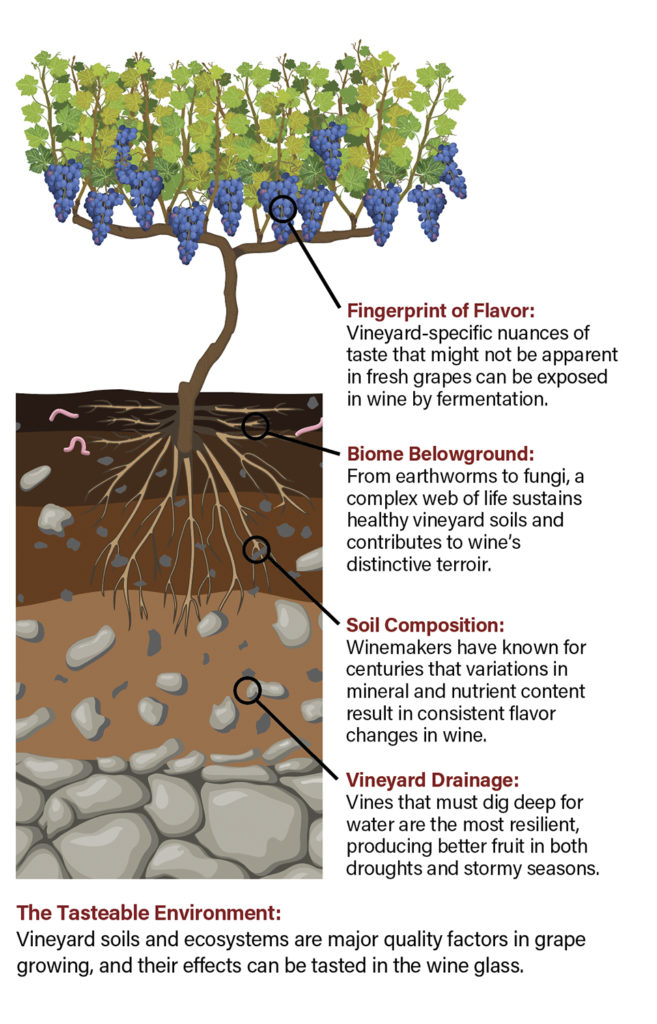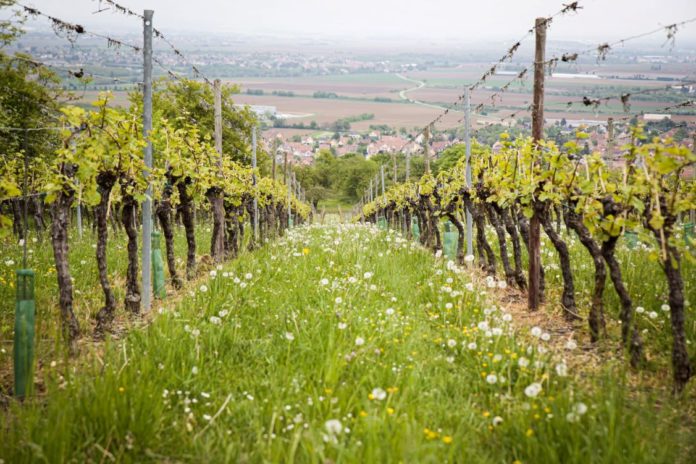Grasping the underlying concept of terroir is like getting an all-access pass that helps unlock many of wine’s most confounding secrets.
Terroir is the reason why many countries label their wines by region — not by grape — and the reason why so many winemakers say that great wines are made in the vineyard, not in the winery.
Terroir is a French word that means “earth” or “soil” in everyday speech, but the term has been adopted in the wine trade to refer to something else entirely: sensory traits in wine that are location-specific.
The word was first used in this sense by medieval monks in the Burgundy region seeking to describe the noticeable differences found in wines grown in different sites. Occasionally, the term is used to refer to a piece of land; a legendary wine estate like Chateau Margaux might be described as one of the “greatest terroirs of Bordeaux.”
However, terroir more often refers to a wine’s sensory properties, to the unique character that a vineyard imparts though its terrain, climate and soils.
Today, terroir is often described as an “earthy” or “mineral” flavor, but terroir traits can manifest in a wine’s texture or finish as well. Some experts can identify a wine’s appellation by its terroir alone in blind tastings, but terroir is hard for the average wine drinker to discern.
If wine were a piece of music, terroir wouldn’t be a melody or arrangement as much as the distinctive acoustics of a specific performance venue, like the famed resonance of Carnegie Hall.

Terroir: Am I Tasting Dirt?
Reading about terroir, it’s natural to wonder if there’s actual soil in your wine.
There’s not, but it has been known for centuries that vineyard soil variables — soil type, composition and drainage — play a strong role in wine flavor.
More recently, it has become clear that farming choices can amplify or suppress the tasteable terroir traits found in wine as well. Science has yet to fully explain the mechanisms at work, but the interplay of life cycles in the vine’s environment appear to be central, particularly microbiological processes such as soil renewal.
What seems apparent with enough tasting experience is that disrupting these natural processes with systemic chemical treatments such as herbicides and fertilizers in conventional farming weakens the resulting wine’s terroir. This suggests that it is the web of life in the vineyard environment and belowground that impart the location-specific facets of flavor that are so prized by wine lovers.
This insight leads many premium vintners to practice organic or natural agriculture, or even biodynamic farming.
Feature photo by Flash Dantz on Unsplash.
Marnie Old is one of the country’s leading wine educators. Formerly the director of wine studies for Manhattan’s French Culinary Institute, she is best known for her visually engaging books published by DK – such as Wine: A Tasting Course. Marnie currently serves as director of vinlightenment for Boisset Collection. Listen to her recent podcast, Wine Needs to Recalibrate, and read her recent piece, How to Preserve Opened Wine Part 2: Freeze It!




